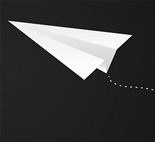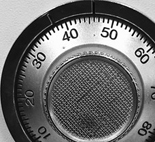Latest news
Using Children as Weapons in Family Disputes: Achiever Style 4
Author: Christina McMahon | Date: 11/05/2020

Achiever Personality
When you first meet they often will be clear and precise and have a feeling of strength about them. You may feel you can rely on them because of their clarity about where they are going and how they are going to get there. When something needs doing they just get on with it and often will take the load off you.
Often partners will attract their opposite and the opposite to an achiever is a harmoniser; it is like two polarities are attracting as magnets and it is in the relationship that each can move closer in skills to the strengths of their opposite and choose to learn new skills. Look for an ‘energetic or volatile’ relationship if you have two achievers together.
What they can do in a crisis?
(Remember we are only referring to the style when it is not working from the positive; many achievers have a high level of skill to negotiate and consider others needs.)
Can be aggressive depending on their skill level – can become very dominant, blunt, abrasive or in a few situations physically violent. The emotion they are experiencing is anger as they want the situation to change and they are not getting their way. Their primary need is to keep the power in the situation; especially if in the relationship they have always been the ones to call the shots and hold the power. The fear of losing power means they can’t ‘do’ what they want; the courts may be holding the power and this could intensify anger if the courts appear to treat them in an unfair manner.
How do they use children as weapons?
Because these people can be very strong they can demand a child to do what they really do not want to do; it may simply be in the way they speak. The child may be trying to ‘protect’ the other parent or minimise the anger in the battle of the parents. This can cause enormous stress in the child and it will depend on their emerging personality how they will be able to handle this situation – if the child is also this style they could be angry but if they turn it on themselves it will be deep resentment and eventually possibility illness. In extreme and limited situations the children may be fearful of this parent if volcanic tension of anger is evident when around the child. The child can be a weapon as the battle could be over the wellbeing of the child or other parent because of the anger of one parent.
When this personality style is operating well they will simply be very clear, firm, give easy to follow boundaries and expectations in a very loving manner to their children. However when anger is not dealt with the child may be intimidated or fearful of when the parent will next be angry and what that will mean for them or the other parent. A child caught in the battle of the parents can always be on watch to see if the situation is safe and this can result in many different behaviours and emotions; if the parent is very powerful in a negative manner it may mean they will suppress, be quiet and generally not communicate with this parent.
How does the ‘Balanced’ parent help to break the pattern?
Start to come from a compassionate heart.
(Impossible if your unresolved emotions are getting in the way).
Make sure you receive professional help to move through your emotional issues.
If this parent is out of control with anger it is often best not to be present when they are in extreme rage as the anger could be dumped on you. To be able to know how to manage a person in rage takes many skills. The ‘Harmoniser’ and often the ‘Responsible’ generally cannot handle this behaviour and become exceptionally hurt and defensive by the intensity of the anger directed at them. They may as they grow older learn to be more assertive and stand up to an angry achiever; however many people do not manage anger well when directed straight at them and really you need training to be able to help with this situation. To be able to stay in the presence of an extremely angry person you need to be able to be centred and have the ability to be appropriately assertive no matter what is thrown at you. This takes real skill.
Sometimes the reason for the breakdown in the relationship is the intensity of anger and the effect it can have on children.
Often in this situation it is best to have an advocate to talk for you or after everything has gone through the courts to set arrangements up so there is no contact of the battling ex-partners.
With regard to children the angry parent needs to be given evidence to strongly show what affect their anger can have on the welfare of their children. They still love their children but have allowed themselves to get out of control; anger controls them rather then they feel anger and use it constructively as a passion for change. They need to really recognise the importance of care, nurturing, love and reassurance and plenty of hugs and praise for their children.
They generally do not try to use their children as weapons (can change if a second style is very strong) they simply have become insensitive to the damage anger can do to their children.
(Training manual available: The Ego Self www.conflictresolutionbooks.com.au )
© Copyright material written by Christina McMahon





